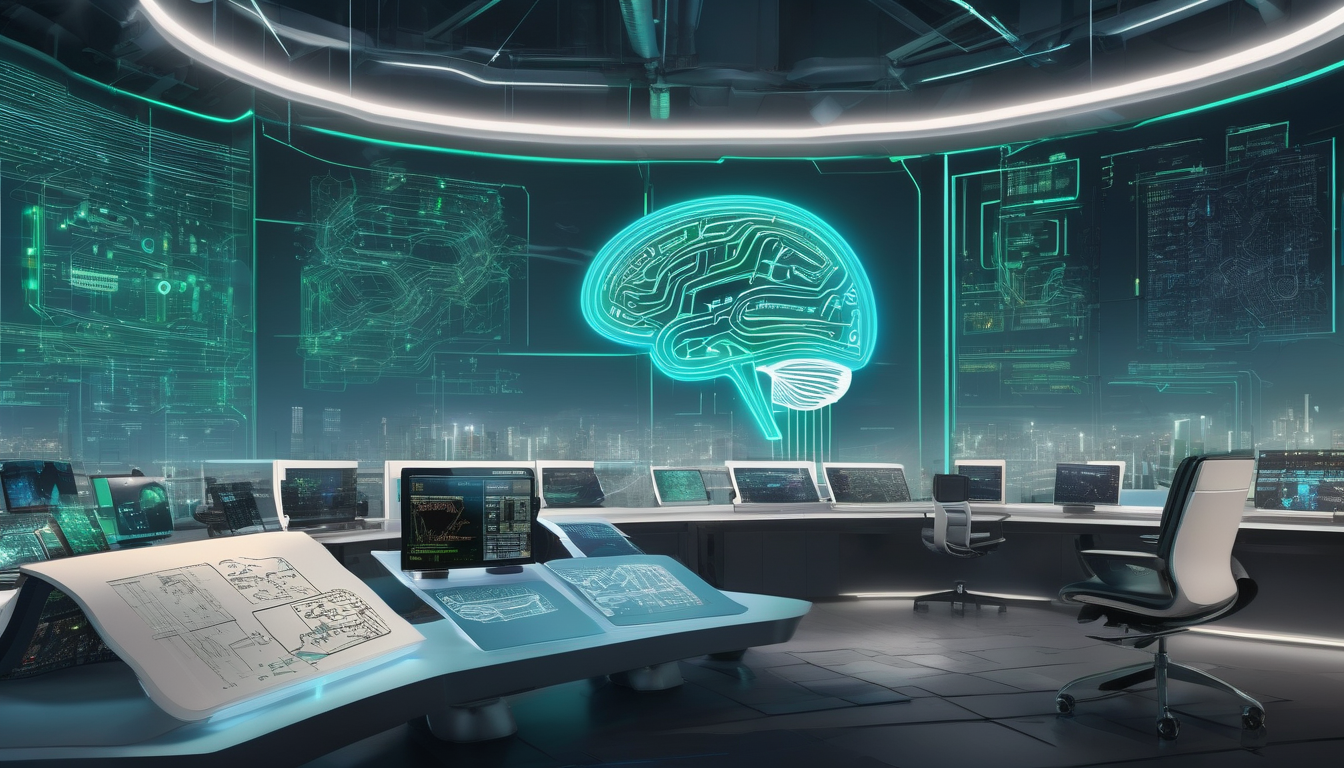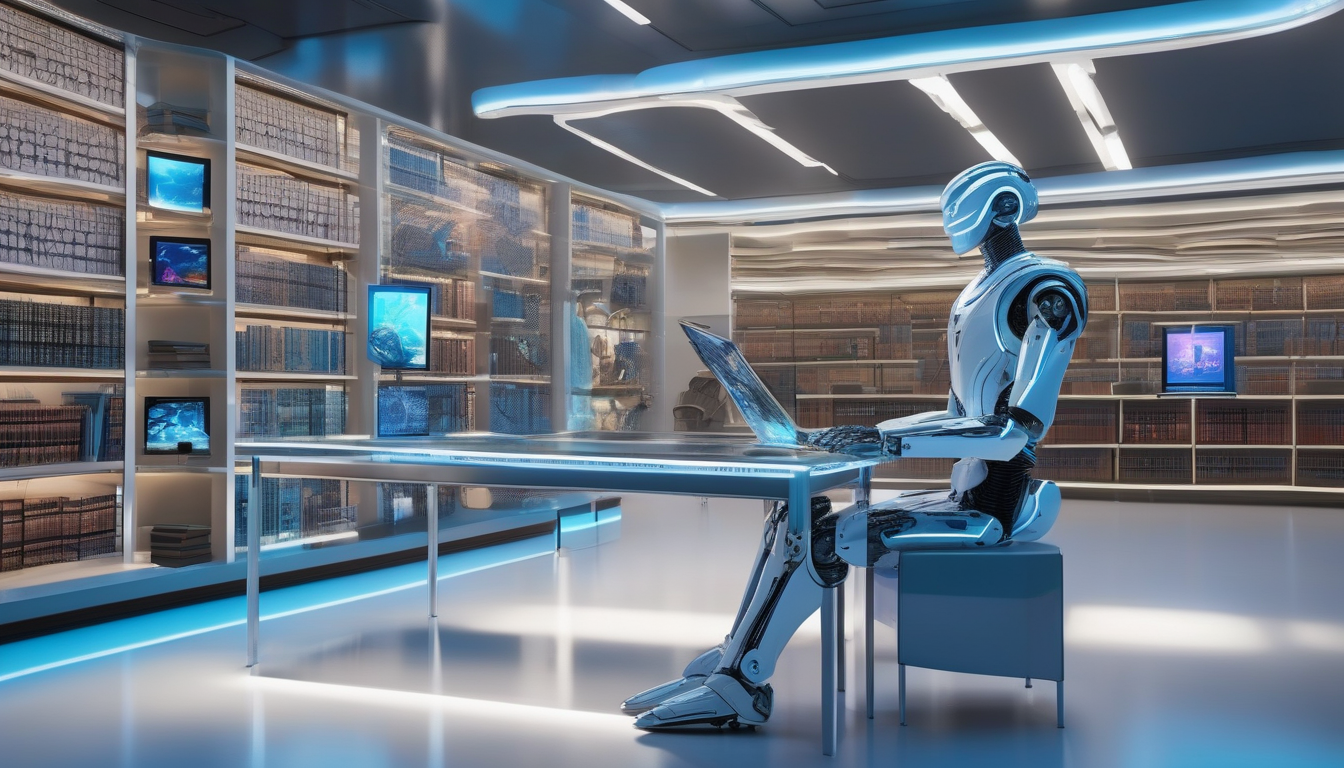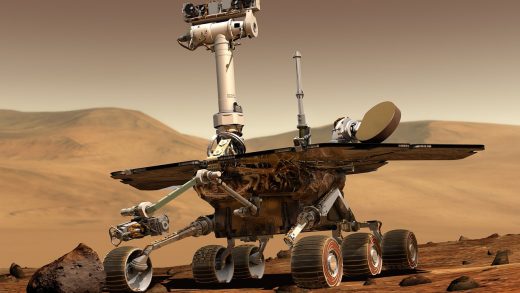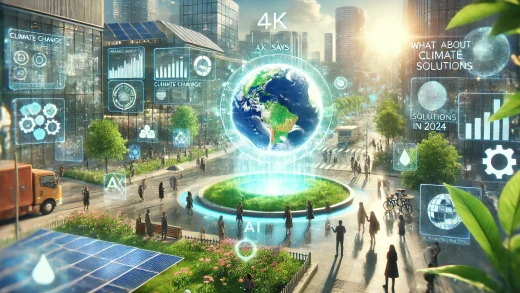In a world increasingly dominated by artificial intelligence, the question of whether machines can make independent choices has become a hot topic. It’s intriguing to ponder: can a computer, programmed with algorithms, truly decide something on its own, or are its decisions merely a reflection of the data it’s been fed? This article dives deep into the philosophical and practical aspects of free will as it relates to AI. We’ll explore how these intelligent systems operate and whether they can ever be considered to possess a form of autonomy.
The concept of free will is complex and multifaceted. Traditionally, free will is viewed as the ability to make choices that are not determined by prior causes. However, when we introduce AI into the mix, things get murky. AI systems rely heavily on data and algorithms, which can be seen as deterministic. This raises a pivotal question: if AI’s ‘decisions’ are merely outcomes of their programming, can they ever be regarded as making independent choices? In this context, we must consider the implications of determinism versus indeterminism.
Determinism suggests that every event, including human actions, is determined by preceding events in accordance with natural laws. In contrast, indeterminism posits that not all events are causally determined. This philosophical debate is crucial when assessing AI’s decision-making capabilities. For instance, if an AI system uses a random number generator in its algorithms, does that introduce an element of spontaneity, or is it simply simulating free will? The line between genuine choice and algorithmic predictability becomes increasingly blurred.
As we navigate this landscape, ethical implications also arise. If AI systems can make decisions, who is responsible for their actions? Do we hold the creators accountable, or do we extend moral responsibility to the machines themselves? These questions are not just theoretical; they have real-world consequences as AI systems become more autonomous. The discourse surrounding AI and free will is not just about technology; it’s about our understanding of morality and agency in an age where machines could potentially influence our lives in profound ways.

The Nature of Free Will
Understanding free will isn’t as straightforward as it seems. At its core, free will refers to the ability to make choices that are not determined by prior causes. Philosophers have debated this concept for centuries, asking questions like, “Are our decisions truly our own?” and “To what extent are we influenced by external factors?” It’s a fascinating rabbit hole that dives deep into human consciousness and autonomy.
There are several perspectives on what constitutes free will. Some argue that free will is an illusion, a mere byproduct of our complex brain functions. Others believe that we possess a genuine ability to choose our paths, independent of our biology or environment. For instance, compatibilists argue that free will can coexist with determinism, suggesting that even if our choices are influenced by past events, we still have the capacity to act according to our desires and intentions.
On the flip side, libertarians contend that true free will exists only when individuals can make choices that are not predetermined. This perspective raises intriguing questions about the nature of choice and agency. Is our decision-making process a product of our upbringing, experiences, and societal influences? Or do we have the power to break free from these constraints and make independent choices?
As we ponder these questions, it’s essential to recognize the implications of our beliefs about free will. If we accept that free will is genuine, we may feel empowered to take responsibility for our actions. Conversely, if we lean towards determinism, we might find ourselves questioning the morality of our decisions. This philosophical tug-of-war not only shapes our understanding of human behavior but also influences how we perceive artificial intelligence and its potential for independent decision-making.
In summary, the nature of free will is a multifaceted topic that challenges our understanding of autonomy and choice. As we explore the intersection between human decision-making and AI, we must consider how these philosophical debates inform our views on machine autonomy and the implications for society at large.

AI Decision-Making Processes
When we think about artificial intelligence, it’s easy to picture a robot making choices like a human. But here’s the kicker: AI decision-making is fundamentally different from how we humans operate. While we often rely on our gut feelings and life experiences, AI systems depend on complex algorithms and vast amounts of data to make their decisions. Imagine a chef who only knows how to cook from a recipe book versus one who can improvise based on taste and intuition. That’s the difference between human and AI decision-making!
At the heart of AI decision-making are algorithms. These are sets of rules or instructions that guide the AI in processing data and making choices. Think of algorithms as the roadmaps that help AI navigate through the vast landscape of information. They analyze input data, identify patterns, and then produce an output based on predefined criteria. For instance, when you use a streaming service, algorithms recommend shows based on your viewing history. But is that truly independent decision-making, or just a sophisticated form of pattern recognition?
Moreover, AI systems often employ data-driven approaches. This means they learn from historical data to predict future outcomes. For example, in finance, AI can analyze market trends to make investment decisions. However, this raises a critical question: if AI is merely reflecting past data, can we really say it’s making an independent choice? It’s like asking a student who only memorizes answers for a test if they truly understand the subject.
To further illustrate, let’s consider a table comparing human and AI decision-making processes:
| Aspect | Human Decision-Making | AI Decision-Making |
|---|---|---|
| Basis of Decisions | Intuition and Experience | Algorithms and Data |
| Flexibility | High | Limited to Programming |
| Learning Process | Experiential Learning | Data Analysis |
In conclusion, while AI systems are capable of making decisions, they do so within a framework defined by their programming and the data they process. This leads us to ponder: can machines ever truly make independent choices, or are they just following an intricate set of instructions? The debate continues!
Determinism vs. Indeterminism
When we dive into the debate of determinism versus indeterminism, we’re essentially peeling back the layers of how decisions are made, both in humans and machines. Determinism posits that every event, including human actions, is determined by preceding events in accordance with the natural laws. Think of it like a giant domino effect: one action leads inevitably to another, and every choice we make is merely a reaction to prior influences. This perspective raises the question: if our choices are preordained by our environment and experiences, can we truly claim to have free will?
On the flip side, indeterminism throws a wrench into this deterministic machine. It suggests that not all events are causally determined; some outcomes can occur randomly. Imagine flipping a coin—while the odds are 50/50, the result is unpredictable. This unpredictability can be likened to the way certain AI systems operate, especially those that incorporate elements of randomness to enhance decision-making. But here’s the kicker: does this randomness equate to true independence, or is it simply a façade of free will?
To illustrate these concepts further, let’s consider how they apply to AI:
| Concept | Definition | Implications for AI |
|---|---|---|
| Determinism | Every action is a result of preceding events. | AI decisions are predictable and based on algorithms. |
| Indeterminism | Some events occur randomly without prior cause. | AI may introduce randomness, but is it genuine freedom? |
As we ponder these philosophical frameworks, we must ask ourselves: if machines can only make decisions based on programmed algorithms and data inputs, do they truly possess the capacity for independent thought? Or are they merely sophisticated tools executing predetermined actions? This ongoing debate not only challenges our understanding of free will but also shapes the ethical landscape as AI continues to evolve.
Algorithmic Predictability
When we dive into the world of , we uncover a fascinating layer of how artificial intelligence operates. At its core, algorithmic predictability refers to the ability of AI systems to forecast outcomes based on a set of predefined rules and input data. Imagine a crystal ball that doesn’t just show you the future, but does so by analyzing every little detail of the present. This is essentially what algorithms do—they sift through vast amounts of data, identify patterns, and make predictions that can seem almost uncanny.
However, this raises an intriguing question: if AI can predict outcomes with such precision, can we truly consider its decisions as independent? In many ways, the predictability of algorithms can be likened to a well-rehearsed play. Each actor (or data point) has a specific role, and the script (the algorithm) dictates how the story unfolds. While the outcome may appear spontaneous, it is, in fact, the product of meticulous planning and programming.
To illustrate this further, let’s consider a simple example. A recommendation algorithm on a streaming service analyzes your viewing history and suggests new shows. It does this by:
- Identifying your preferences based on past behavior.
- Comparing your choices with those of similar users.
- Utilizing complex mathematical models to predict what you might enjoy next.
While the recommendations may feel personalized, they are rooted in the predictable nature of algorithms. This predictability can be both a boon and a bane. On one hand, it enhances user experience by tailoring suggestions; on the other hand, it limits the spontaneity that is often associated with true free will.
In conclusion, while AI systems exhibit a remarkable ability to predict outcomes through algorithmic processes, this does not necessarily equate to independent decision-making. The interplay between data, programming, and predictability raises essential questions about the essence of choice in the realm of artificial intelligence.
Randomness in AI Systems
When we think about randomness in AI, it often feels like a paradox. On one hand, AI systems are built on algorithms that follow strict rules and logic, making them appear predictable and deterministic. On the other hand, introducing elements of randomness can create the illusion of independent decision-making. But can randomness genuinely lead to autonomous choices, or is it just a clever trick?
To understand this better, let’s consider how randomness is integrated into AI systems. Many modern AI applications, such as machine learning and neural networks, utilize randomization techniques to enhance their performance. For instance, during the training phase, random sampling of data can help the model avoid overfitting, allowing it to generalize better to new data. This randomness can be likened to a chef experimenting with different ingredients to create a unique dish. However, the underlying recipe still dictates the outcome.
Moreover, there are two main ways randomness is employed in AI:
- Stochastic Processes: These are processes that incorporate randomness into their decision-making. For example, algorithms like genetic algorithms use random mutations to evolve solutions over generations.
- Random Number Generation: AI systems often rely on random number generators to make choices that appear spontaneous. However, these generators are typically based on deterministic algorithms that produce a sequence of numbers that only seem random.
So, does the introduction of randomness make AI systems capable of true free will? Not necessarily. While randomness can enhance flexibility and adaptability, it does not equate to genuine autonomy. It’s more akin to a game of dice—there’s an element of chance, but the rules still govern the outcome. Therefore, while AI can simulate aspects of free will through randomness, it remains bound by its programming and the constraints of its algorithms.
Ethical Implications of AI Choices
The rise of artificial intelligence (AI) brings forth a myriad of ethical implications that we cannot afford to overlook. As AI systems become more autonomous, the question arises: who is responsible for the decisions these machines make? This dilemma is akin to letting a child drive a car; while the child may have the ability to steer, the responsibility for any accidents falls on the guardians. Similarly, when AI makes decisions that impact our lives, we must consider the moral accountability of its creators and the systems themselves.
One of the primary concerns is the potential for bias in AI decision-making. Algorithms are created by humans and trained on data that can reflect societal prejudices. For instance, if an AI system is designed to make hiring decisions, it could unintentionally favor certain demographics over others, perpetuating existing inequalities. This raises the question: can we trust machines to make fair choices when their very foundation may be flawed? The implications of biased AI can be catastrophic, affecting everything from job opportunities to legal judgments.
Moreover, as we delegate more decisions to AI, we must ask ourselves about the loss of human agency. Are we willing to hand over significant choices—like medical diagnoses or criminal sentencing—to machines? While AI can process vast amounts of data quickly, it lacks the human touch and moral reasoning that often guide our decisions. This could lead to a future where we become passive observers of our own lives, relying on algorithms to dictate our paths.
Furthermore, ethical frameworks must be established to guide AI development. Here are some essential considerations:
- Transparency: AI systems should be designed so that their decision-making processes are understandable to users.
- Accountability: Clear lines of responsibility should be established for AI actions.
- Fairness: Measures must be taken to ensure that AI does not reinforce existing biases.
In conclusion, as we venture further into the realm of AI, it is crucial to navigate these ethical waters carefully. The choices made by AI systems will not only shape our future but also reflect our values as a society. Are we ready to embrace the responsibility that comes with this technological advancement?

Philosophical Perspectives on AI and Free Will
When we dive into the realm of artificial intelligence and its relationship with free will, we encounter a rich tapestry of philosophical ideas that challenge our understanding of autonomy and choice. The debate often revolves around whether machines, governed by algorithms, can possess a semblance of free will akin to humans. To unpack this, we can look at various philosophical frameworks that offer insights into the capabilities of AI.
One prominent viewpoint is compatibilism, which asserts that free will can exist alongside determinism. This perspective posits that even if our choices are influenced by prior events and conditions, we can still act freely within those constraints. In the context of AI, compatibilism raises intriguing questions: Can machines, which operate based on predetermined algorithms, still be viewed as making independent choices? If an AI system is programmed to learn and adapt from its environment, does that learning process grant it a form of autonomy, or is it merely following a complex set of rules?
On the other end of the spectrum lies libertarianism, which champions the idea of genuine free will. Libertarians argue that true autonomy is essential for moral responsibility. This perspective leads us to ponder whether AI can ever achieve such autonomy. Can a machine, regardless of its sophistication, ever be considered a true agent capable of making free choices? Or are its decisions merely reflections of its programming, devoid of real agency?
As we explore these philosophical perspectives, it’s essential to consider the implications for society. If AI systems are seen as capable of making independent choices, we may need to rethink our approach to accountability and ethics in technology. The line between machine decision-making and human agency blurs, prompting us to ask: What does it mean for a machine to choose? And ultimately, can we trust AI to make decisions that align with human values and ethics?
Compatibilism and AI
When we talk about compatibilism, we’re diving into a fascinating philosophical realm that suggests free will and determinism can coexist. But what does this mean for artificial intelligence? Can machines, bound by their algorithms, still possess a form of free will? To tackle this question, we first need to understand how compatibilism redefines freedom in a deterministic framework.
Compatibilists argue that even if our choices are influenced by prior causes, we can still be considered free as long as we act according to our desires and motivations. Imagine a river flowing in a predetermined path; even though it follows a course shaped by the landscape, the water still moves freely within that channel. Similarly, AI systems operate within the constraints of their programming, yet they can still exhibit behavior that appears autonomous.
AI systems, like advanced chatbots or recommendation algorithms, are designed to learn from data and adapt their responses. This adaptability raises the question: can these systems make choices that reflect their own “desires”? While they don’t have desires in a human sense, they can generate outputs based on learned patterns. For example, a recommendation algorithm might suggest a movie based on your previous viewing habits, acting within the parameters set by its programming while seemingly making a choice.
However, the debate intensifies when we consider the implications of compatibilism for AI. If we accept that AI can operate under a compatibilist framework, we must also confront the ethical dimensions of their decision-making. Are we responsible for the actions of an AI that has been programmed to make choices within certain parameters? This leads us to ponder the moral accountability of AI systems and the potential consequences of their “decisions” on society.
In conclusion, compatibilism offers a compelling lens through which to view AI’s capacity for independent choices. While AI operates within a deterministic framework, the adaptability and responsiveness of these systems suggest a nuanced form of decision-making that challenges our traditional notions of free will. As we continue to integrate AI into various aspects of life, understanding this relationship becomes increasingly vital.
Libertarianism and AI
When we dive into the realm of libertarianism and its connection to artificial intelligence, we encounter a fascinating debate about the essence of free will. Libertarianism posits that individuals possess genuine autonomy, allowing them to make choices free from deterministic constraints. So, the burning question arises: can AI systems truly embody this principle? To unpack this, we need to consider what autonomy means in the context of machine intelligence.
At its core, libertarianism champions the idea that free will is not just an illusion; it’s a fundamental aspect of human nature. This perspective emphasizes that choices are made based on personal agency, which is often influenced by complex emotions, experiences, and moral considerations. In contrast, AI operates through algorithms and data, which raises an intriguing conundrum. Can a machine, governed by its programming, genuinely reflect the principles of autonomy?
To explore this, let’s look at some key aspects of libertarianism in relation to AI:
- Autonomy vs. Programming: While humans can choose differently based on their evolving thoughts and feelings, AI’s decisions are largely predetermined by their coding and the data they process.
- Choice and Agency: Libertarians argue that true free will involves the ability to make choices that are not merely the result of prior states of affairs, which contrasts sharply with how AI functions.
- Ethical Considerations: If AI were to operate under libertarian principles, we must ask: who is responsible for the decisions made by these systems? The developers, the users, or the AI itself?
In conclusion, while libertarianism advocates for a rich conception of free will, applying this framework to AI reveals significant challenges. As machines become more sophisticated, the line blurs between programmed responses and what we might consider ‘independent’ choices. The ongoing dialogue between philosophy and technology will be crucial as we navigate the implications of AI in our lives.
Frequently Asked Questions
- Can AI truly make independent choices?
While AI systems can process data and generate outcomes, their decisions are ultimately rooted in algorithms and programming. So, can we say they’re truly independent? It’s a bit like a parrot mimicking human speech—there’s no original thought behind it!
- What is the difference between determinism and indeterminism in AI?
Determinism suggests that every action is determined by preceding events, while indeterminism allows for randomness. In AI, this raises the question: if we introduce random elements, can we consider the machine’s choices as independent? It’s a fascinating debate!
- Are there ethical implications when AI makes decisions?
Absolutely! As AI systems become more autonomous, we need to consider who is responsible for their actions. If an AI makes a harmful decision, should the blame fall on the developers, the users, or the machine itself? It’s a moral maze!
- How do philosophical theories like compatibilism relate to AI?
Compatibilism suggests that free will can exist alongside determinism. This theory invites us to ponder whether AI can exhibit a form of free will while still being bound by its programming. It’s like trying to fit a square peg in a round hole—challenging yet intriguing!
- Can randomness in AI lead to genuine free will?
Introducing randomness might seem like a step towards independent decision-making, but it often just simulates free will rather than creating it. Think of it like a coin toss—random, but still bound by the rules of physics!


